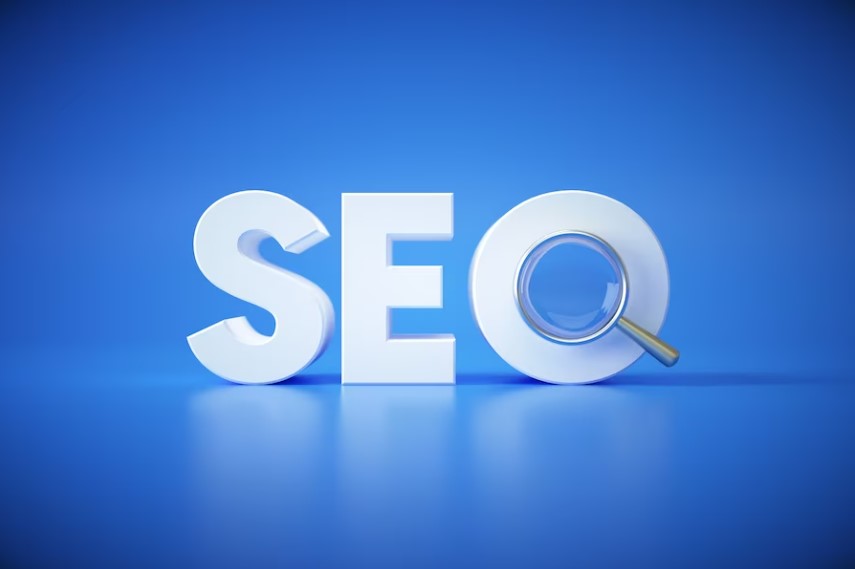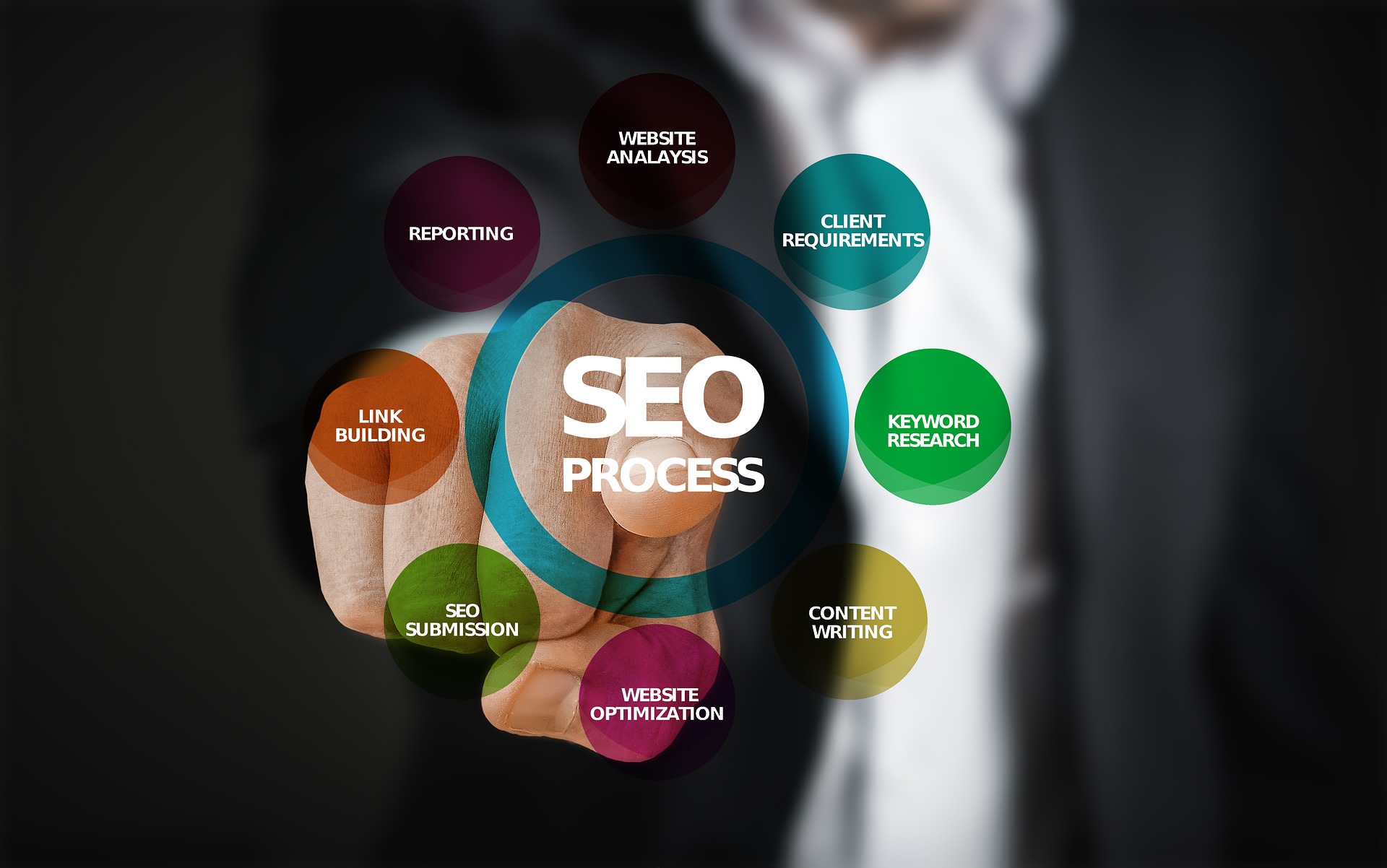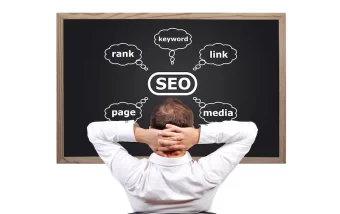How To Know If Someone Blocked You On iMessage? 5 Secret Hacks!
Apr 16, 2025

Apr 16, 2025

Apr 16, 2025

Apr 15, 2025

Apr 11, 2025

Apr 11, 2025

Apr 11, 2025

Apr 08, 2025

Mar 29, 2025
Sorry, but nothing matched your search "". Please try again with some different keywords.


Do you want your business website to perform to the maximum? The closer your site is to perfection, the better it will rank among other pages. Each website has an opportunity to rank higher in its chosen category.
Getting your site optimized comes with a long list of criteria. One of the main things you want to consider is: does page speed affect SEO? And lately, speed is the only thing people want. It’s not surprising with the rise of smartphones and high-speed internet.
But page speed is much more than giving your users a fast experience in loading your page. It matters when it comes to SEO.
Here’s our guide for more information on the importance of page speed and how it affects SEO.
Search engines consider page speed in deciding how high a website or page should rank. It will also determine how much traffic the page should generate. Here’s a list of the benefits of having a fast page speed and how it affects your SEO ranking:

It is a major factor in user experience and contributes to how long it takes for a web page to load. The faster a page loads, the better the user experience.
A fast page speed can lead to higher conversion rates. As users are more likely to stay and take action on the website if it loads. Pages that take too long to load will lead to an increase in bounce rates.
Users may become frustrated or lose interest before loading the page completes. It can also affect because search engines consider page speed when ranking websites. Faster pages will achieve higher rankings. This results in more organic traffic and higher conversions.
Fast-loading pages also make it easier for search engine bots to crawl and index your website. Making it easier to rank your website higher. To ensure a good page speed, you should compress images, and minify HTML, JavaScript, and CSS files. You should also leverage browser caching and optimize your databases.
The page speed ranking factor is something that links to the user’s experience when they are loading a page. A slower page speed will frustrate users and cause them to click away to another website.
Search engines such as Google will recognize this and will penalize your website. They can do this by lowering your rankings.
It is important to optimize the page speed of your website. This allows returning customers an enjoyable experience and does not hurt your rankings.
The MobileFirst Index closely looks at how fast webpages load for mobile device visitors. Other elements such as responsive layouts and mobile usability. Page speed is now more important than ever.
MobileFirst Index may give preference to websites that provide a faster, more interface for mobile users. Webmasters should ensure they test their website speeds. Also making sure the useful tools such as Google’s Page Speed Insights and other page speed optimization strategies.
Factors That Can Slow Down Loading Time
Factors that can slow down the loading time for websites include uncompressed images or audio files, too many ads, and redirects. Large files such as videos, content management systems, and plug-ins can also contribute to loading time. It is essential for businesses to deal with these problems immediately to avoid any losses.
Here are the several factors that can slow done your site:
When enough disk speed is not available, retrieving website elements are slower. This makes it take longer for the webpage to assemble and render.
This issue is further compounded when fetching large images, audio, and video files. As data must be from disk storage many times for each element. Disk access latency is another important parameter to take into account.
Shared hosting and public clouds can both cause websites to load more than other alternatives due to some factors. These can include having many websites sharing the same server. It can also limit the resources on a single server and have insufficient bandwidth.
Shared hosting and public cloud systems can offer limited or difficult scaling options. It also lacks protection from malicious users on the same architecture as others.
Managing and monitoring a hosting service reduces the loading time. It can also keep a website accessible. Companies should also look at their website design.
There are companies like https://www.intoclicks.com/tucson-web-design/ that can help design the website for you. Making sure to code opportunities to reduce page loading times and increase efficiency.
If a website uses a server that is too small for its data needs, the server can become overwhelmed. It causes the website longer load times. This is caused by too many users accessing the website at the same time.
Without a sized server, it won’t have the capability to manage the requests, which results in delays. Other factors, such as backup files and updates, can also lead to a website taking longer to load. This happens when a server is too overburdened with extra tasks.
A large server will need more resources, resulting in a slower site. If the server isn’t totaling optimized for the website’s resources, you should expect a slow website.
Images that are not optimized display larger file sizes and thus need longer load times. Uncompressed images can cause a website to have longer load times. Large images can also need extra processing time which can slow down the loading time of the website.
Certain CMSs and servers may not be able to process large file sizes. Which could cause the website to slow down, or the images to be unable to load at all. To prevent slow loading times, it’s important to optimize images before uploading them.
Poorly coded and low-performing databases can also have a negative impact. Forcing a website to search through large tables instead of finding the desired data. A high number of requests to the database can also slow down the time it takes for a website to load.
Increasing file sizes can also have a detrimental impact on loading times. External scripts can also slow down performance.
In areas where the internet service is not reliable, slow speeds can be a common problem. The size of the files associated with the website will have a direct impact on loading time. If the website has large media files, the server needs more resources and bandwidth to load them.
In today’s technological world, data speed is crucial for website performance. Slow loading times due to a slow network connection can lead to a frustrating, negative experience for the user.
A system administrator handles ensuring the website is running. Without an administrator, you can’t update the website, test new features, or run diagnostic tests. This can lead to slow loading times.
Security vulnerabilities are not monitored, scaled, and patched on time. This can lead to performance issues. The website’s complex content management needs a dedicated administrator.
Making sure to maintain the system and ensure optimal loading times. Without one, website performance and uptime can suffer.
Use a tool like Google’s Page Speed Insights or Pingdom’s Website Speed Test to gain detailed information on page loading times, performance benchmarks, and suggestions for improvement. Make sure to check for any issues with caching, compression, or minifying your website’s contents.
Test your website across different devices and browsers, particularly for mobile users, and make sure it’s loading quickly and responsively. Analyze your website’s total load time, prioritize what needs to be optimized and made faster, and use a tool such as A/B Testing to see exactly what difference the optimizations have made.
Page speed affects user experience and interaction, as well as search engine ranking factors. It is important for web pages to load quickly for users. Slow-loading web pages often lead to a drop in visitor engagement and potentially too low search engine rankings.
Here’s a list to improve loading speed:
Choose an Optimized Hosting Solution
Choosing the right hosting platform can have a significant impact on your website. When choosing a host, pay attention to the server’s I/O capacity, scalability, and feature set. Consider the infrastructure, caching capabilities, and uptime.
The next step is to analyze and understand performance issues. Make sure to take the necessary steps to improve the page speed. This includes using lazy loading, compressing images, optimizing the database, and caching static HTML.
Redirects are when a user is forwarded to a different page than the one they request. Every redirect counts against your page speed. Where possible, avoid many redirects to a page.
If you must use them, ensure you use 301 redirects. This tells search engine crawlers that the page is moved and should be indexed. Merge HTTP requests and avoid 404 errors.
Limiting JavaScript and CSS on pages can also help. Look into compressing images and monitoring site performance.
Caching is saving the HTML source of a web page in a local cache. This can be served faster when requested by a user.
The cached copy will be served rather than making a new request from the origin servers. Website speed improvement can be attained by:
Using server-level caching can also help increase page speed as well as reduce the load on the web server. By using caching techniques, website owners can improve the performance of their websites and enhance their SEO.
By minifying the code, it can be compressed and read more quickly, leading to reduced loading times. To minify HTML and CSS, one can use automated services while JavaScript should be minified manually in order to prevent any errors.
One can also consider using browser caching to store static assets like HTML, CSS, and JavaScript. This helps to reduce the number of HTTP requests a browser needs to send in order to access these files.
CDN is a system of distributed servers that can be used to deliver web content to visitors from different geographic regions. By leveraging CDN, webmasters can reduce latency, improve the user experience across devices, and can boost SEO.
Webmasters should make sure to configure their settings correctly, optimize corner cases, and set up caching rules. Webmasters should look into using a server-side caching layer and fine-tune each content type that is being served.
Plugins can be a huge drain on resources, so it’s important to be selective about which plugins are used. In some cases, one comprehensive plugin can be used to replace multiple plugins that offer the same functions. When implementing plugins, be sure to use the latest version, as old versions typically lack quality, speed, and security.
Deactivating and deleting unused plugins will help reduce page load time. Also, be on the lookout for plugins that hog resources or have features that are not associated with core operations. By keeping plugins to a minimum and actively checking that each plugin is as efficient as possible, page speed can be significantly improved.
To ensure the success of your business online it is essential to know if page speed affect SEO. Being a faster site leads to a better user experience that both search engines and customers appreciate. Looking at various tools to help assess website speeds and making the necessary fixes to optimize speeds are effective ways to boost SEO.
To get started, take a look at your site’s current speed, and use available services to improve load time.
If you find this article educational, browse our blog for more interesting reads!
Abdul Aziz Mondol is a professional blogger who is having a colossal interest in writing blogs and other jones of calligraphies. In terms of his professional commitments, he loves to share content related to business, finance, technology, and the gaming niche.
View all Posts
How To Know If Someone Blocked You On iMessag...
Apr 16, 2025
7 Website Design Mistakes That Are Hurting Yo...
Apr 16, 2025
Programmable Dynamic SEO for Location-Based P...
Apr 15, 2025
Google Boba Game: How To Play This Fun Game B...
Apr 11, 2025
Which Is The Best Video Search Engine Of 2025...
Apr 11, 2025

